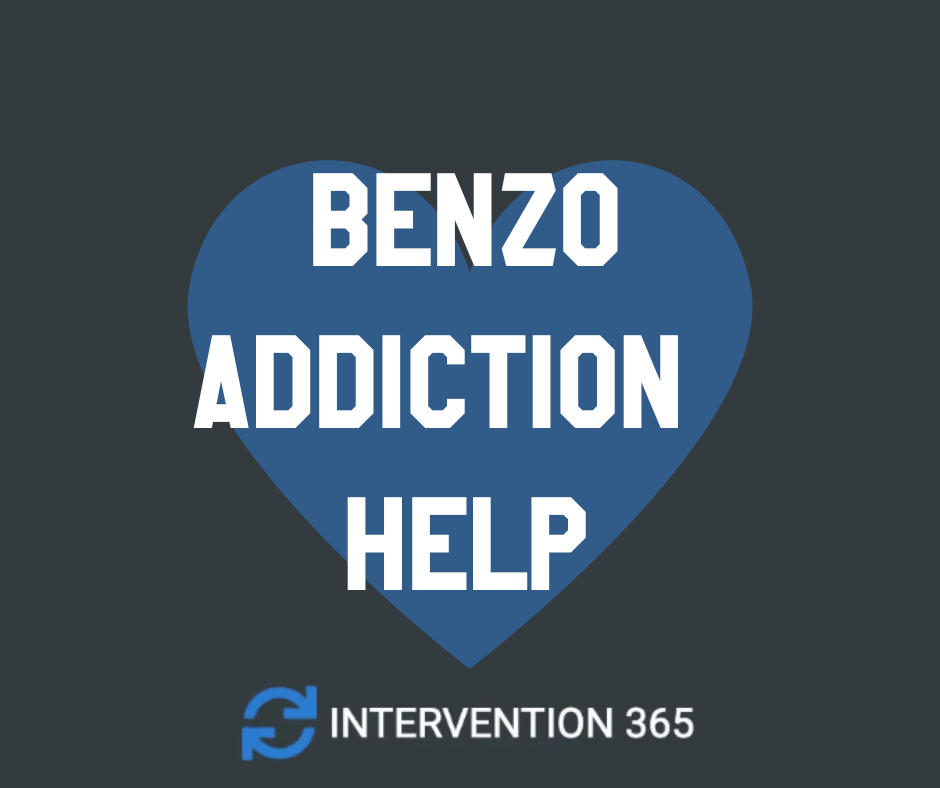Benzo Addiction Help

Addiction Help For Benzo Abuse
Benzodiazepines and Addiction: Understanding the Risks and Finding Help
Benzodiazepines are a class of central nervous system (CNS) depressant drugs commonly prescribed to manage anxiety, panic, muscle spasms, and seizures. While they can be beneficial when used as prescribed for short-term treatment, there is a potential for dependence and misuse. At our site, we aim to provide valuable information on benzodiazepines, their effects, and the importance of intervention and addiction help. Get help by searching "benzo detox near me".
What are Benzodiazepines?
Benzodiazepines, often referred to as "benzos," are widely prescribed sedative medications used to alleviate various conditions. According to the 2021 National Survey on Drug Use and Health, over 25 million individuals aged 12 and older used prescription benzodiazepines in the last year alone. These medications are effective in managing anxiety, muscle spasms, seizures, and even alcohol withdrawal symptoms.
The Risks of Misusing Benzodiazepines
Despite their therapeutic benefits, benzodiazepines can be addictive when used improperly. Long-term use beyond the prescribed period may lead to dependence and addiction. In 2021, 3.9 million people aged 12 and older misused prescription benzodiazepines, highlighting the concerning issue of nonmedical use.
Benzodiazepine Misuse and Addiction
Misusing benzodiazepines involves taking someone else's medicine, using it for recreational purposes to experience euphoric effects, or using it in ways other than prescribed. Combining benzos with other substances, like alcohol or opioids, can significantly increase the risk of adverse effects and even fatal overdoses.
Recognizing Benzo Addiction
Addiction to benzodiazepines is possible, leading to a substance use disorder. Long-term use can create tolerance, compelling individuals to take higher doses to achieve the desired effects. Signs of addiction include unsuccessful attempts to reduce use, cravings, and continued use despite negative consequences.
Benzodiazepine Withdrawal and Overdose
Withdrawal symptoms may occur when individuals dependent on benzodiazepines suddenly stop or reduce their use. These symptoms can be severe and may include insomnia, anxiety, hallucinations, seizures, and shakiness. A benzo overdose can be life-threatening and might involve over-sedation, respiratory depression, or loss of consciousness. Benzos combined with alcohol can be deadly and cause severe memory loss.
The Road to Recovery: Treatment Options
If you suspect benzodiazepine misuse or addiction, professional help is essential. Detoxification and withdrawal management should be medically supervised to ensure safety and comfort. Following detox, comprehensive substance use disorder treatment, such as inpatient or outpatient programs, can address the behavioral, psychological, and social aspects of addiction.
Intervention for Benzo Abuse
Family intervention can play a vital role in motivating individuals to seek help for benzodiazepine abuse. Our site provides valuable information on conducting interventions to support your loved one's journey towards recovery.
Help and Support for Benzo Addiction
At our site, we are dedicated to providing valuable resources and information to help individuals struggling with benzodiazepine addiction. Our treatment programs offer tailored options, including detox, inpatient, outpatient, and aftercare support. If you or a loved one needs assistance, our admissions navigators are available 24/7 to answer questions and guide you towards the path of recovery.
Empower yourself with knowledge and discover how intervention and professional help can make a significant difference in overcoming benzodiazepine addiction. Take the first step towards a healthier and more fulfilling life today. Call us at 888-972-8513.
DOES BENZO ADDICTION & ABUSE COVERED BY HEALTH INSURANCE FOR TREATMENT?
Find out today if your insurance will cover detox or rehab for benzo addiction.
Benzodiazepine addiction is a substance use disorder characterized by the misuse and dependence on benzodiazepine medications. Prolonged use of these drugs can lead to physical and psychological dependence, making it challenging to quit without professional help.
Signs of benzodiazepine addiction may include increased tolerance, cravings, unsuccessful attempts to quit, continued use despite negative consequences, withdrawal symptoms when not using, and spending excessive time and effort obtaining the drug.
Benzodiazepine withdrawal can be challenging and uncomfortable due to the body's dependency on the drug. Symptoms may include insomnia, anxiety, hallucinations, tremors, and even seizures. Withdrawal should be medically supervised to ensure safety and minimize discomfort.
Quitting benzodiazepines abruptly or "cold turkey" is not recommended due to the risk of severe withdrawal symptoms and seizures resulting in death. It can be dangerous and may lead to complications. Medical supervision and a tapering schedule are essential for a safer withdrawal process.
Benzodiazepine detox is the process of eliminating the drug from the body. It involves gradually reducing the dosage to minimize withdrawal symptoms. Detox should take place in a professional medical setting where healthcare professionals can monitor the individual's progress.
Yes, there are medications that can be used to assist with benzodiazepine detox. These medications help alleviate withdrawal symptoms and reduce the discomfort associated with quitting benzos. Common medications include diazepam and clonazepam, which have longer half-lives and can be gradually tapered.
The duration of benzodiazepine detox varies depending on individual factors, such as the type of benzo used, dosage, and the duration of use. Detox may take several weeks to complete, but it can vary from person to person.
Detox is an essential first step, but it is not sufficient on its own to address benzodiazepine addiction fully. After detox, individuals should continue with comprehensive addiction treatment, such as inpatient or outpatient programs, to address the psychological and behavioral aspects of addiction.
Detoxing from benzodiazepines at home is strongly discouraged due to the risk of severe withdrawal symptoms and complications. Medical supervision is crucial during the detox process to ensure safety and provide appropriate medical care if needed.
If you or someone you know is struggling with benzodiazepine addiction, seeking professional help is essential. Reach out to addiction treatment centers, healthcare providers, or addiction specialists who can guide you towards appropriate treatment options.

